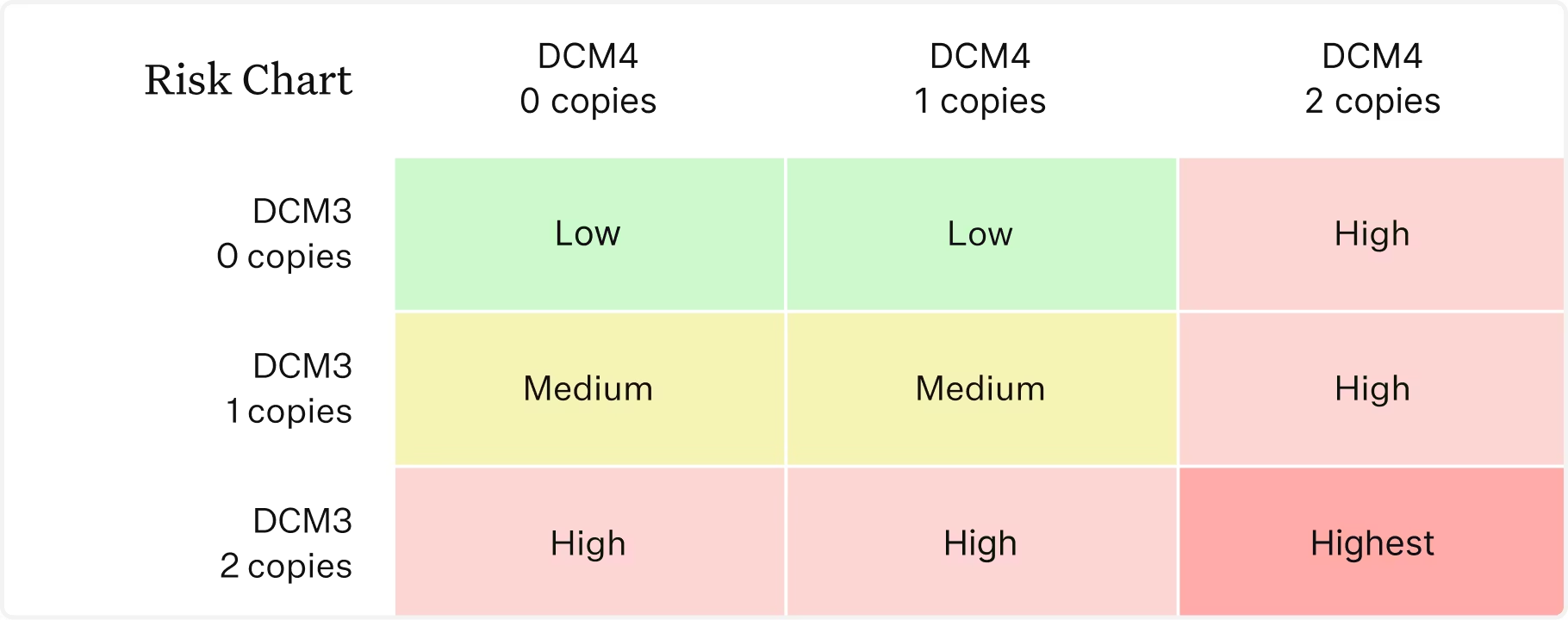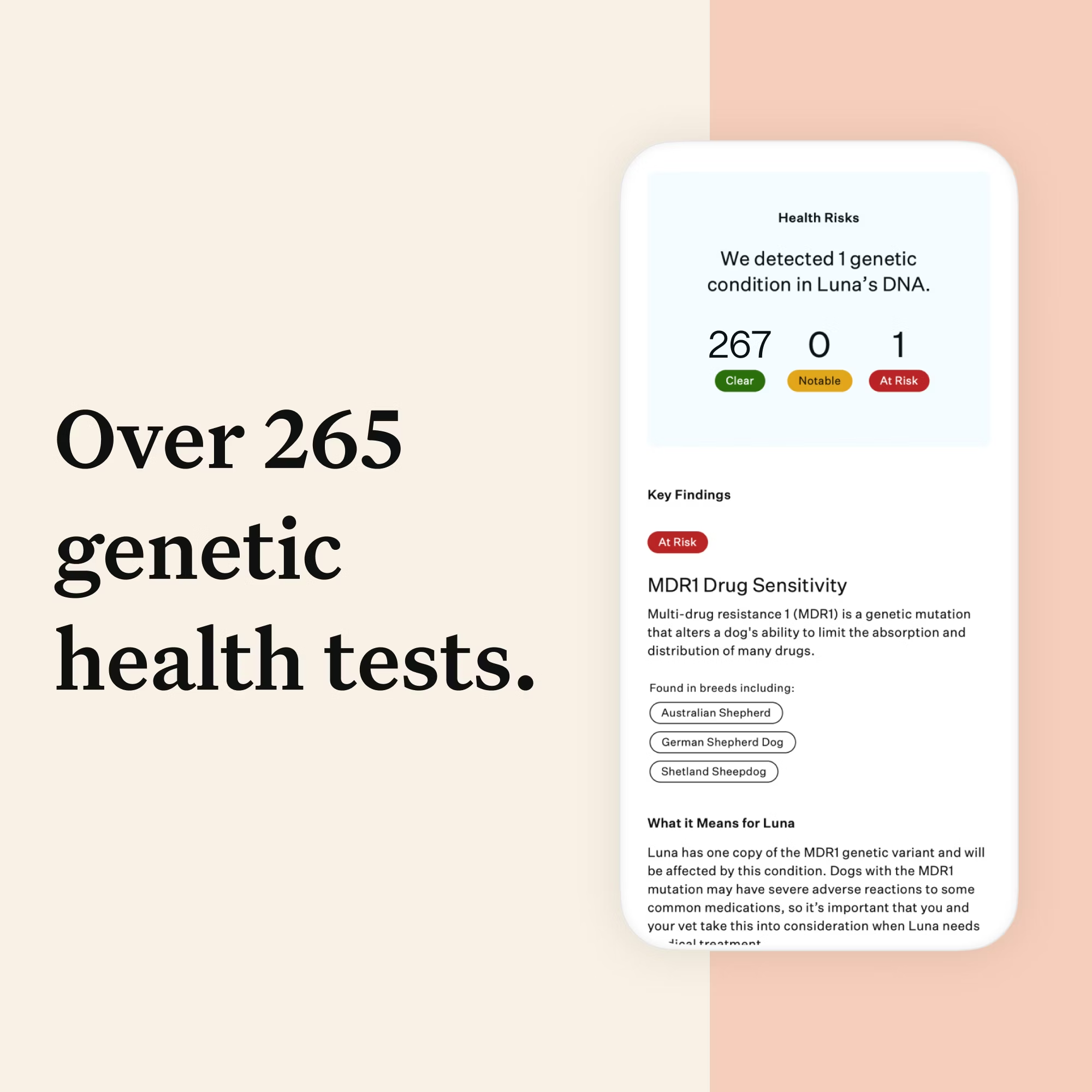Following a ground-breaking scientific publication, Wisdom Panel is proud to announce the inclusion of Dilated Cardiomyopathy (DCM) testing in Optimal SelectionTM Canine and MyDogDNA® DNA tests when screening Doberman Pinschers. As part of a collaboration between research groups spanning several countries–including universities at Helsinki, Bern, Ljubljana, Munich, Uppsala, and Utrecht–Wisdom took part in the largest study of Doberman DCM to date, uncovering new genetic risk factors.
What is Doberman Dilated Cardiomyopathy (DCM)?
DCM is a severe condition in which the walls of the heart become thin and weak, leading to heart enlargement and eventual heart failure due to a decreased ability to pump blood. It is the second most common heart disease in dogs and prevalence of dilated cardiomyopathy (DCM) in the Doberman breed is estimated at 58%. The condition typically presents in middle-to older-aged dogs, often past the time of breeding, which makes the ability to genetically screen for risk of this condition crucial for the health of future generations.
DCM is a complex disorder that is influenced by hereditary and non-hereditary factors, and signs of the disease vary between individuals. Affected dogs may show exercise intolerance, persistent coughing, weakness, weight loss, breathing difficulties, fainting, or swelling of the abdomen due to fluid build up (known as ascites). Although males and females have equal rates of DCM, male Dobermans are more likely to show earlier clinical signs and congestive heart failure than females. Some Dobermans may only experience heart arrhythmias (irregular heartbeats) which can cause sudden death in up to 30% of Dobermans without any other signs.
What to expect if your dog is at risk
Though understanding of DCM and treatment options continue to progress, dilated cardiomyopathy remains a serious and fatal disorder. Because it is an incurable and progressive condition, the focus of treatment is on managing how the disorder progresses and optimizing quality of life.
Dogs at risk of developing DCM should be examined at least once a year by a veterinarian and, if possible, a veterinary cardiologist. Imaging techniques such as an echocardiogram (heart ultrasound) may be used to understand the heart’s current health status. Holter monitoring, a portable electrocardiogram (ECG), may be used for asymptomatic dogs since arrhythmias can be the first–or only–clinical sign.
While there is no cure, dogs who develop DCM can receive therapy to control arrhythmias, improve the heart’s function, and manage congestive heart failure. In addition, working with a veterinarian on appropriate diet and exercise plans can help improve quality of life. And, because stress can worsen clinical signs, keeping dogs as calm and stress-free as possible can be beneficial.
What are the new scientific insights?
Published in September of this year (2023), the Doberman DCM study represents the culmination of 20 years of scientific research on Dobermans. Over 540 clinically-confirmed, privately-owned Dobermans were included in the study. Genome-wide SNP array genotyping and whole-genome sequencing were used to identify a statistically significant association between DCM and two regions of DNA on canine chromosome 5. Importantly, this finding replicates a previous study of DCM in Dobermans in Germany and the UK, adding credibility and confidence to the chromosome 5 association.
Two highly significant genetic markers emerged from these analyses, both on chromosome 5: chr5:53,109,178 (DCM3) and chr5:60,531,090 (DCM4). Despite these markers being located relatively close together on chromosome 5, they appear to contribute to disease risk in an independent, but additive, manner. No association was found for DCM risk between DCM1 (PDK4) and DCM2 (TTN) variants in this European study set, in line with a previous European study.
DCM3 is associated with less overall risk, but follows a dominant inheritance pattern, with increased risk associated with one or two copies of the risk variant. DCM4 is associated with greater risk of DCM development, but follows a recessive inheritance pattern, in which increased risk is associated only with dogs carrying two copies of the risk variant in the absence of DCM3.
Please note that the causal risk variants were not identified in the study and that DCM3 and DCM4 are highly associated linkage markers.
Breakdown of risk
Low risk: 0-50%
Medium risk: 51-75%
High risk: 76-99%
Highest risk: 100%

Will the Optimal Selection and MyDogDNA tests now include the original DCM1 and DCM2 variants?
Yes! These two genetic risk factors were identified by Dr. Kate Meurs and the team at North Carolina State University. The first, called DCM1, is a variant in the PDK4 gene. The DCM1 risk variant has been associated with heart disease in family lines of American Dobermans, with an estimated 37% of dogs with one or two copies of the variant developing DCM. The second variant, known as DCM2, is in the TTN gene. It is estimated that 50% of dogs with one or two copies of DCM2 develop the condition. However, Dobermans with both DCM1 (one or two copies) and DCM2 (one or two copies) are considered at highest risk, with an estimated 60% likely to develop DCM.
For further information and advice on all four variants please visit our detailed DCM breeder pages for North American breeders here and all other regions here.
Want to learn more?
Free webinars will be offered on two dates in November, to accommodate both North American and European breeders:
- Week of Nov 20th for European breeders
- Week of Nov 27th for North American breeders
Webinars will be chaired by a panel of experts, including the primary investigator involved in the DCM3/DCM4 study. Wisdom’s RSVP is requested in advance; expect announcements of date and time and a link to sign up on this page. Question suggestions for discussion at the webinar can be submitted here.
Next steps: how you can help
Wisdom Panel is planning a research study to validate the DCM3/DCM4 study findings in a group of North American Dobermans, as well as to reevaluate the association of DCM1/DCM2 with DCM and the combined risk for all four risk markers. This will require DNA samples from Dobermans with cardiac screening (echocardiograms and Holter monitoring) results. We are still in the early stages of planning this research study and will post more information here about how breeders can participate once the study design is finalized.

















